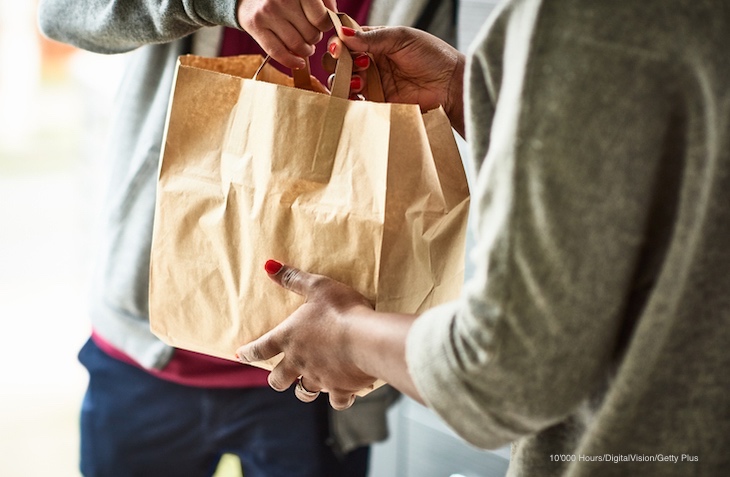The coronavirus pandemic is changing the way Americans eat. Many more people eat at restaurants, take out food, or have it delivered than cook in their own kitchens. But with the news that the virus can survive on surfaces, especially plastic and cardboard, for days, is coronavirus pandemic food delivery safe?

The FDA and USDA insist that the U.S. food supply is safe, and there are no cases of transmission through food or food packaging. But with new information coming out about this pathogen every day, it pays to think about things like food containers and transmission.
After all, a few weeks ago experts didn’t think the virus could be transmitted by touching a contaminated surface; that has changed. Viability of the virus on fomites, which are surfaces such as plastic handles and steel doorknobs, varies depending on the environment. A dry surface offers less protection to the virus than a damp surface, but a smear containing the virus could be viable.
Remember that coronavirus can remain infectious up to 3 hours as an aerosol, up to 4 hours on copper, up to 24 hours on cardboard, and 2 to 3 days on stainless steel and plastic, but only following heavy contamination.
Delivery interaction is also a consideration. If a person who is infected but asymptomatic sneezes, coughs, or breaths near you, you could get sick. It may be a good idea to pay for the food on the phone or online, and request that the delivery be left at your door rather than meet the delivery person face-to-face.
When you get the food, take it out of the containers, throw the containers away, put the food on pans or plates that can go in the oven or microwave, reheat the food to at least 140°F to make sure that any viruses are dead, then disinfect your countertop and wash your hands before you eat.
By ordering from local restaurants that are probably closed to dine-in services, you are also supporting the economy and keeping those businesses going. And you are also protecting others if you are infected.
The same goes for ordering products online. Open the products, discard the cardboard, wipe down packages with disinfectant, disinfect your counter, and wash your hands.
Follow these recommendations to help keep you and your family safe. This is a new world, but you can navigate it by following some new rules.




